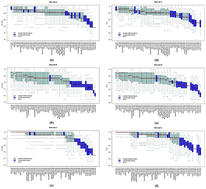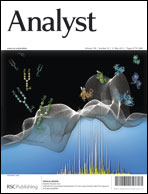An automated Pearson's correlation change classification (APC3) approach for GC/MS metabonomic data using total ion chromatograms (TICs)†
Abstract
A fully automated and computationally efficient Pearson's correlation change classification (APC3) approach is proposed and shown to have overall comparable performance with both an average accuracy and an average AUC of 0.89 ± 0.08 but is 3.9 to 7 times faster, easier to use and have low outlier susceptibility in contrast to other dimensional


 Please wait while we load your content...
Please wait while we load your content...